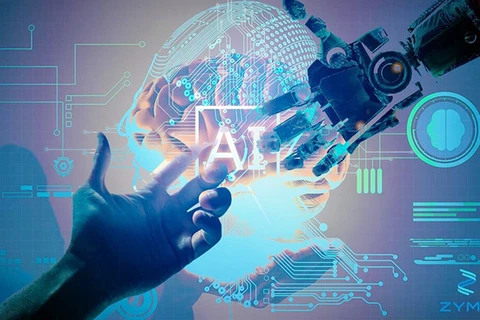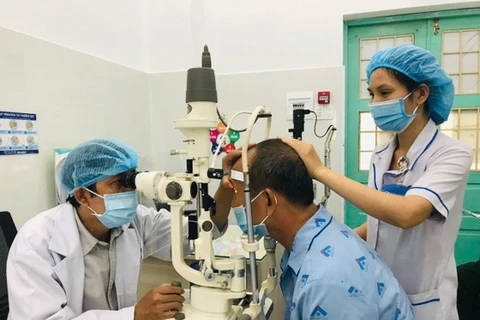Hanoi (VNA) – Artificial intelligence (AI) is poised to revolutionise economies, and Vietnam is well-positioned to reap the benefits and emerge a leader – both development and application, highlighted an article run at intelligent global legal research platform Lexology.com.
According to the article, the Vietnamese government is taking steps to support the development of AI, with initiatives that foster innovation and entrepreneurship. The government is investing in research and development, providing tax incentives for companies that adopt AI technology, and supporting the growth of the startup ecosystem, it noted.
One example is the Vietnam AI Grand Challenge, a programme launched in 2019 to encourage the development of AI technology, it said, adding that it provides funding, support, and resources to AI startups and researchers, helping them develop and commercialise their AI solutions.
Vietnam has also set up several AI Centres of Excellence in universities and research institutions to encourage the development of AI technology. The centers provide support and resources to researchers, and collaborate with industry partners to develop AI solutions for various sectors.
The article also underlined the impacts of AI on health care and agriculture in Vietnam.
However, it held that AI will pose challenges to the Vietnamese labour market. While AI will create new and more dynamic job opportunities, it is also likely to disrupt existing employment. For example, the use of robots is growing, and it will become possible for robots and machines to perform many tasks that are now being performed by humans. This will result in job losses, it explained.
The article stressed that there will need to be appropriate regulations and policies to ensure that AI is used ethically and responsibly, while suggesting some issues need tackling, including privacy and data protection, intellectual property, liability and accountability./.
According to the article, the Vietnamese government is taking steps to support the development of AI, with initiatives that foster innovation and entrepreneurship. The government is investing in research and development, providing tax incentives for companies that adopt AI technology, and supporting the growth of the startup ecosystem, it noted.
One example is the Vietnam AI Grand Challenge, a programme launched in 2019 to encourage the development of AI technology, it said, adding that it provides funding, support, and resources to AI startups and researchers, helping them develop and commercialise their AI solutions.
Vietnam has also set up several AI Centres of Excellence in universities and research institutions to encourage the development of AI technology. The centers provide support and resources to researchers, and collaborate with industry partners to develop AI solutions for various sectors.
The article also underlined the impacts of AI on health care and agriculture in Vietnam.
However, it held that AI will pose challenges to the Vietnamese labour market. While AI will create new and more dynamic job opportunities, it is also likely to disrupt existing employment. For example, the use of robots is growing, and it will become possible for robots and machines to perform many tasks that are now being performed by humans. This will result in job losses, it explained.
The article stressed that there will need to be appropriate regulations and policies to ensure that AI is used ethically and responsibly, while suggesting some issues need tackling, including privacy and data protection, intellectual property, liability and accountability./.
VNA
























